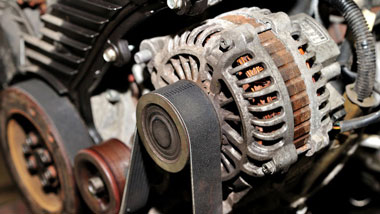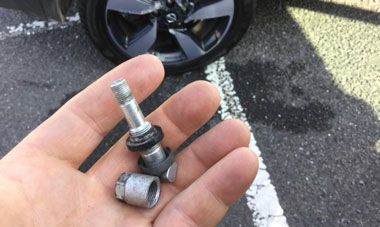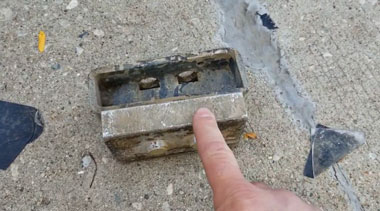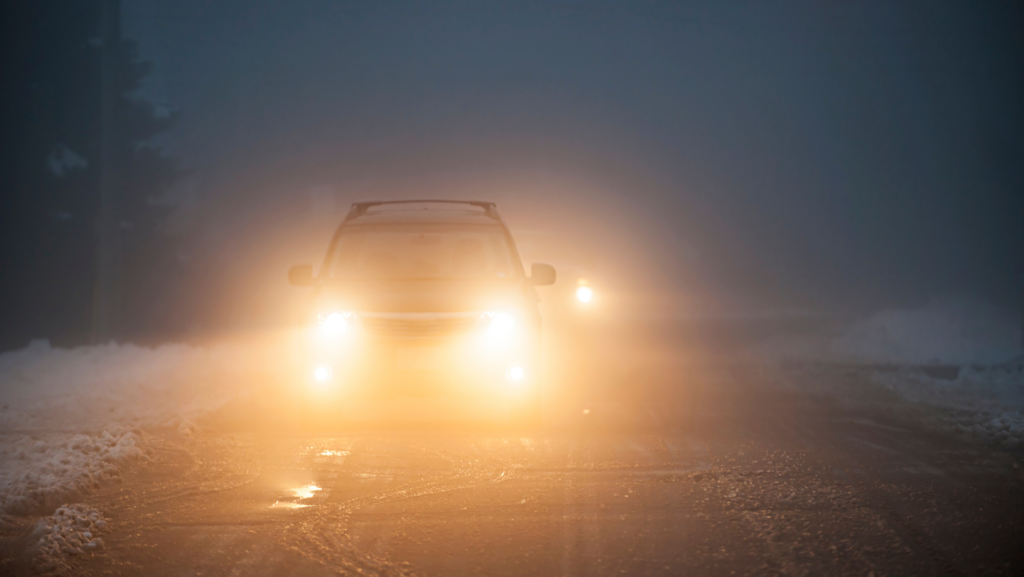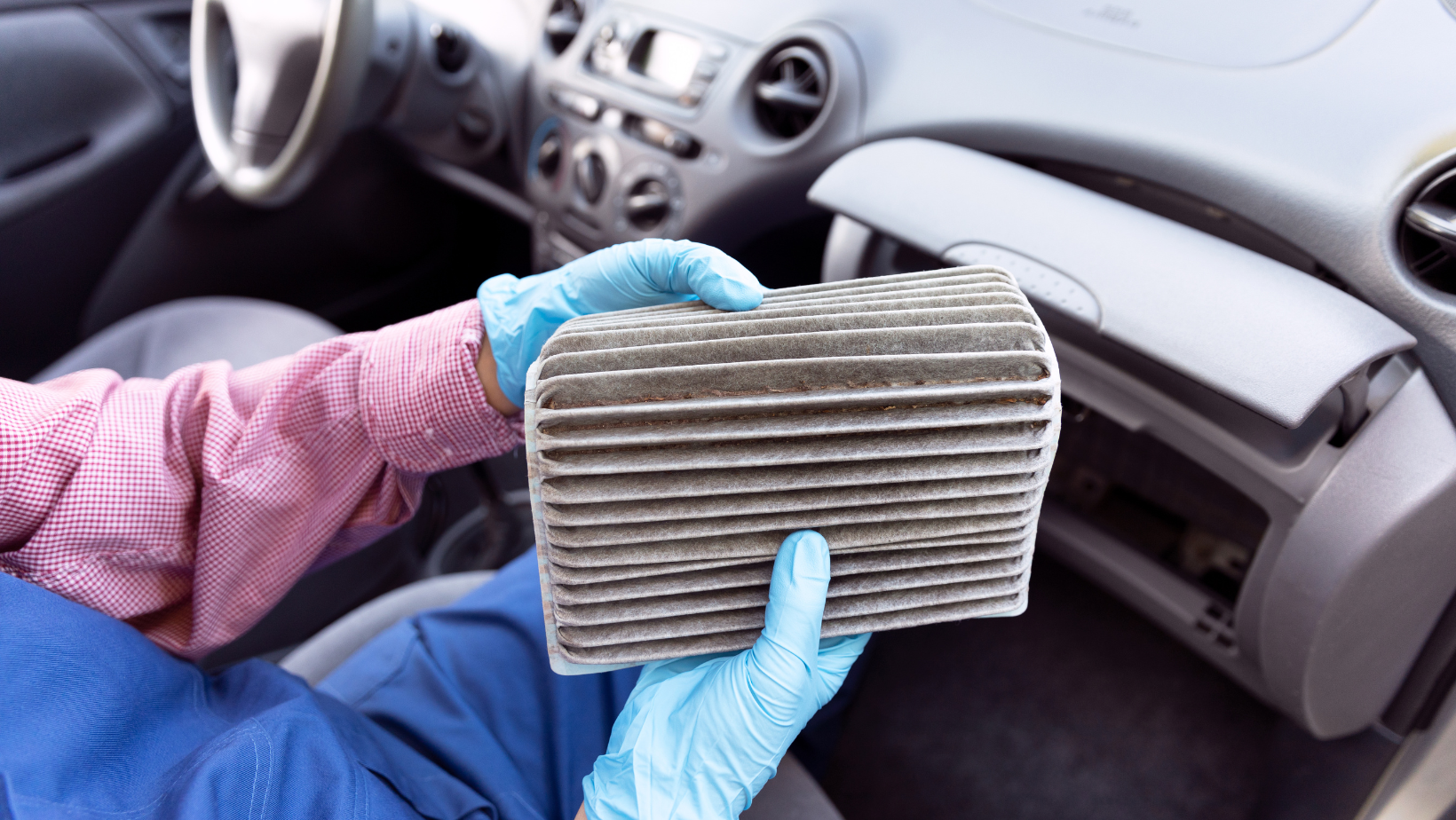
As the weather gets colder, we all start to think about our cars a little bit more. Making sure they are winterized and ready for the snow and ice. But there is one thing that many people forget to do, or even know about- changing their cabin air filter.
Most cars have them, and they need to be changed regularly in order to keep the air quality in your car fresh. So can you drive without a cabin air filter? The answer is yes, but it’s not recommended.
- Check your car’s owner’s manual to see if it has a cabin air filter and where it is located
- If your car does have a cabin air filter, gently remove it from its housing
- Take the new cabin air filter out of its packaging and insert it into the housing, making sure that it is properly seated
- Replace any panels or covers that were removed in order to access the filter
What Happens If You Don’T Have a Cabin Air Filter?
If you don’t have a cabin air filter, the quality of the air inside your car will gradually deteriorate. Over time, dust, pollen and other airborne contaminants will build up on the surfaces inside your car, including the upholstery, windows and dashboard.
These contaminants can cause allergic reactions in some people and may also contribute to respiratory problems.
In addition, if you live in an area with high traffic levels or construction activity, not having a cabin air filter can allow harmful fumes from vehicle exhaust to enter your car.
Can I Run My Car With No Cabin Air Filter?
Cabin air filters are designed to improve the quality of the air inside your car by trapping pollutants and allergens. While you can technically run your car without a cabin air filter, doing so would allow these contaminants to circulate freely inside the vehicle and could eventually lead to health problems for passengers with allergies or respiratory issues.
Additionally, over time, running your car without a cabin air filter can cause other parts of the HVAC system to become clogged with debris, potentially resulting in reduced airflow or even complete failure of the system.
For these reasons, it’s generally not advisable to operate a car without a cabin air filter in place.
Can I Just Remove My Cabin Air Filter?
If your vehicle has a cabin air filter, it’s important to keep it clean and replace it as needed. A dirty or clogged cabin air filter can reduce the amount of fresh air that flows into the vehicle, and over time, this can cause musty odors. It can also contribute to poor visibility through the windshield if the filter is excessively dirty.
Cabin air filters are typically located behind the glove box or under the dashboard. To remove the old filter, consult your vehicle’s owner’s manual for specific instructions. Once you have located and removed the old filter, install the new one by following these steps:
1. Hold the new filter up to the opening where the old one was located. Make sure that it is positioned correctly and will fit snugly into place.
2. Insert the new filter into place and make sure that it is seated properly.
3. If your cabin air filter has screws holding it in place, tighten them until they are snug but do not overtighten them as this could damage the housing or break off a tab on the new filter itself
If your cabin air filter snaps into place, make sure that it is locked securely in position before moving on to step 4 below
– some models may have a locking tab that needs to be pushed down in order for thefilter to snap into position while others may just require pressing firmly on all sides until you hear/feel it click into place;
4) Close up any housing or compartment doors that you had opened during this process – again, consult your owner’s manual if you are unsure where everything goes back;
5) Start up your vehicle and check that there are no obvious leaks coming fromthe area where you just replaced your cabin air filter
6) Check your owner’s manual to see how often they recommend changingyour cabin air filter (it is usually every 12 months or 12,000 miles driven although this varies depending on make/model/year). Inspectingand replacing your cabin air filter regularly will help ensure optimalair quality inside your vehicle for years to come!
Do You Really Need a Cabin Air Filter?
If you have ever wondered whether or not you need a cabin air filter for your car, the answer is most likely yes! Here’s why:
Cabin air filters are designed to remove contaminants from the air that comes into your car.
This includes dust, pollen, and other airborne particles. These filters help to keep the air inside your car clean and fresh.
While many newer cars come with cabin air filters already installed, older models may not have them.
If your car does not have a cabin air filter, it is a good idea to get one installed.
There are a few things to keep in mind when shopping for a cabin air filter. First, make sure that the filter is the right size for your car.
Second, choose a filter that has been rated to trap at least 99% of particles larger than 0.3 microns in size. Finally, be sure to replace your cabin air filter regularly – typically every 12 months or so.
However, if you are unsure about how to do it yourself, consult with a mechanic or dealership before proceeding.
NO CABIN AIR FILTER CAN BE BAD!
What Happens If There is No Cabin Air Filter
If there is no cabin air filter in your car, the quality of the air inside the cabin will gradually deteriorate. Over time, dust, pollen, and other airborne contaminants can build up on surfaces and start to cause problems for passengers with allergies or respiratory issues. In extreme cases, a lack of a cabin air filter can also lead to window fogging and reduced visibility while driving.
How Long Can a Car Drive Without an Air Filter
If your car has a clogged air filter, it can reduce fuel efficiency by up to 10%. A dirty air filter can also lead to engine damage, as it allows dirt and debris to enter the engine. For these reasons, it’s important to regularly check and replace your car’s air filter.
So how often should you replace your car’s air filter? It depends on a few factors, including the type of vehicle you have and the driving conditions you typically encounter. In general, though, most carmakers recommend replacing the air filter every 12 months or 12,000 miles (19,000 km), whichever comes first.
If you do a lot of stop-and-go driving in dusty or polluted conditions, you may need to replace your air filter more frequently. The same goes for if you frequently drive on unpaved roads. Conversely, if you mostly drive on highways in clean conditions, you may be able to go longer between replacements.
You can check your car’s owner manual for specific recommendations about when to replace the air filter. Or, if you’re unsure, just ask your mechanic at your next oil change or tune-up appointment. They’ll be able to tell you whether it’s time for a new one based on a visual inspection.
Why Does My Car Not Have a Cabin Air Filter
Cabin air filters are designed to filter the air that comes into the cabin of your car, and they are an important part of the vehicle’s HVAC system. Many newer cars have them, but some older models do not. If you’re not sure if your car has a cabin air filter, check your owner’s manual or ask your mechanic.
There are several reasons why your car might not have a cabin air filter. One possibility is that it was never installed from the factory. This is more likely in older cars, but it’s possible in newer ones as well.
Another possibility is that the cabin air filter has been removed at some point (perhaps by a previous owner) and never replaced. Or, it could be that your car simply doesn’t have space for a cabin air filter because of its design.
Whatever the reason, not having a cabin air filter means that the air inside your car is not being filtered and could be full of allergens, dust, pollen, and other particles.
This can be especially problematic for people with allergies or asthma. If you’re concerned about the quality of the air in your car, talk to your mechanic about installing a cabin air filter system.
How to Tell If Cabin Air Filter Needs Replacing
Cabin air filters are an important part of your car’s ventilation system, and they help to keep the air inside your cabin clean and free of pollutants. Over time, these filters can become clogged with dirt and debris, which can reduce their effectiveness. If you notice that your cabin air seems stuffy or that the airflow from your vents is reduced, it may be time to replace your cabin air filter.
Here are a few other signs that it’s time to replace your cabin air filter:
• Your car smells musty or stale.
• You see visible dirt or debris in the airflow from your vents.
• You or your passengers have allergies or respiratory problems that seem to worsen when you’re driving. If any of these apply to you, it’s probably time to replace your cabin air filter.
Replacing a cabin air filter is usually a quick and easy job that you can do yourself – just follow the instructions in your owner’s manual.
Conclusion
If your car doesn’t have a cabin air filter, you may be wondering if it’s really necessary. After all, it’s just one more thing to keep track of and replace on a regular basis. However, there are several good reasons to make sure your car has a cabin air filter.
One reason is that it helps to keep the air inside your car clean. This is especially important if you or someone in your family has allergies or asthma. The cabin air filter traps pollen, dust, and other allergens so they don’t circulate through the car.
Another reason to have a cabin air filter is that it can help improve the efficiency of your car’s heating and cooling system. A dirty filter can restrict airflow and cause the system to work harder than necessary. Replacing the filter on a regular basis can help prolong the life of your car’s HVAC system.
So, while you may not think it’s necessary, there are actually several good reasons to make sure your car has a cabin air filter. It can help improve the quality of the air inside your car and extend the life of your HVAC system.

